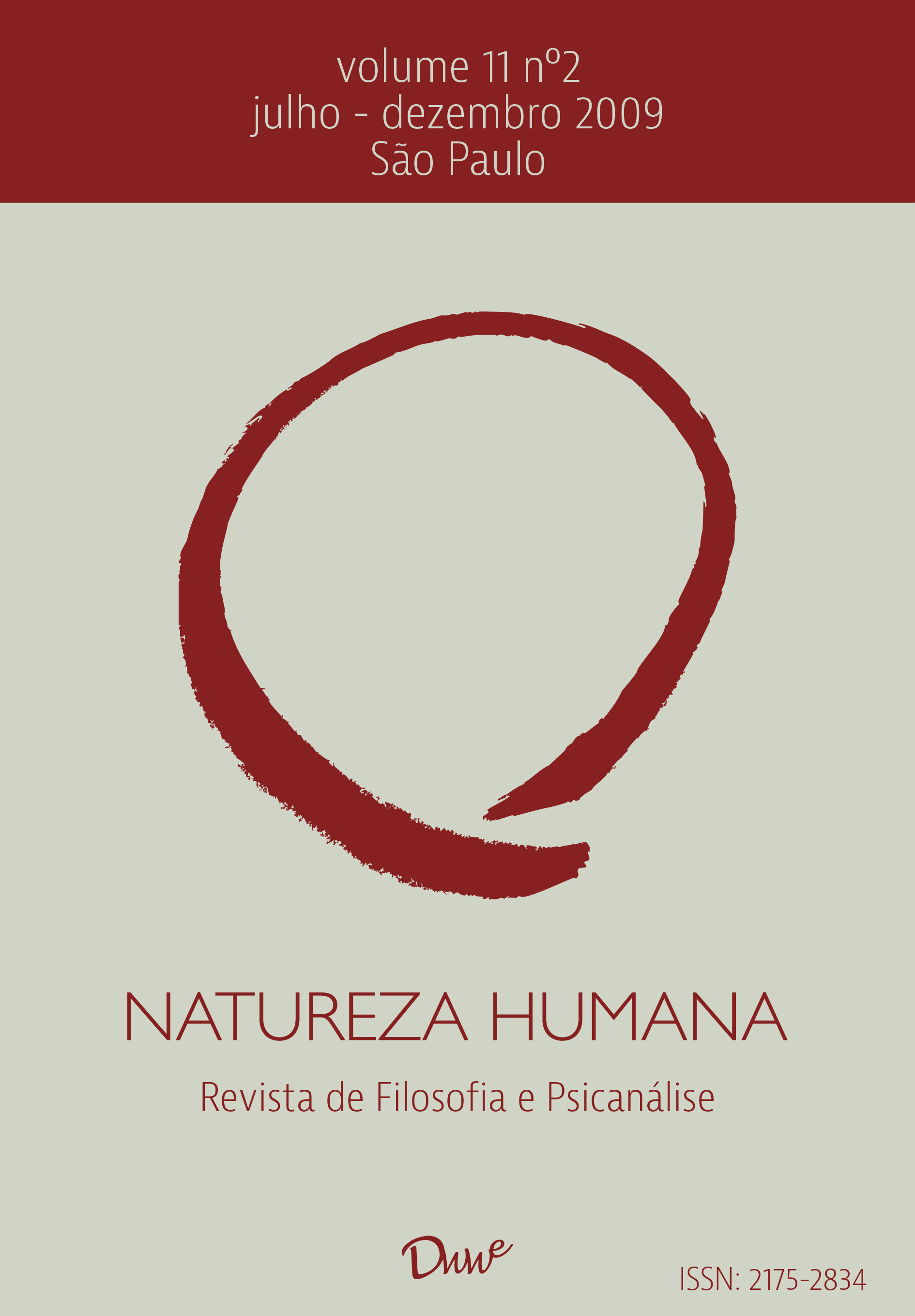Dependence and trust building: a psychoanalytic interpretation of the limits
DOI:
https://doi.org/10.59539/2175-2834-v11n2-952Keywords:
borderline patients; emotional development; psychoanalytical practice; regression; trust.Abstract
The concept of trust plays a central role in Winnicott’s psychoanalytical theory. Starting from this observation, this article examines the processes of construction of trust highlighting two main axes: it proposes a theoretical model for the emergence of trust; and it investigates its clinical uses in borderline patients and situations. Considering the emergence of trust as a process related to the predictability and continuity of the early interactions between the baby and its environment, this article examines the main concepts in Winnicott’s theory that allow for the understanding of the genesis of trust in the child’s emotional development. Following this and looking at it in the light of the concept of regression, trust is analyzed as a useful clinical instrument in certain situations of the psychoanalytical treatment, particularly in cases where the classical interpretative technique finds its limits.Downloads
Published
2024-10-02 — Updated on 2009-10-02
How to Cite
Klautau, P., & Salem, P. (2009). Dependence and trust building: a psychoanalytic interpretation of the limits. Human Nature - International Philosophy and Psychology Review, 11(2), 33–54. https://doi.org/10.59539/2175-2834-v11n2-952
Issue
Section
Artigos








